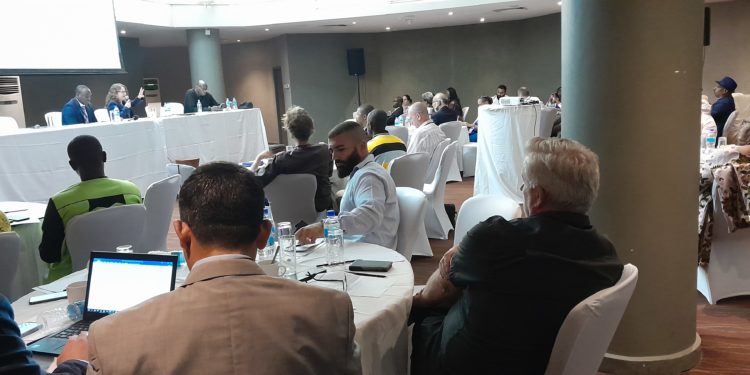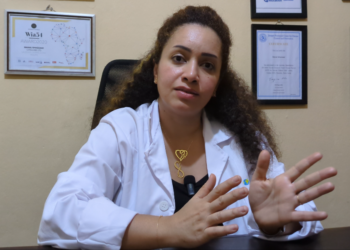A forum to discuss the growth potential of the cocoa sector in Sierra Leone concluded in the capital, Freetown, with calls for investment and improvement in the policy and regulatory environment.
The ‘National Stakeholders Consultation Workshop’, a two-day event, was held from Wednesday, March 15th to Thursday March 16th and it was hosted by the International Finance Corporation (IFC). It brought together local and international experts to discuss how Sierra Leone can capitalize on the booming global organic cocoa market and improve sustainability, productivity, quality, and enhance the certification process for cocoa products from the country.
The event held at the Radisson Blu Mammy Yoko Hotel was also attended by policymakers, private sector leaders, and development and civil society organizations. It was part of efforts by the IFC to understand the cocoa ecosystem in the country, with the aim of increasing productivity, quality, commercialization and value addition, as well as to spore the improvement in policy and regulatory environment, the organizers said, adding that it was basically meant to tap from the knowledge and experience of the participants in the organic cocoa sector, with the aim of developing a strategic roadmap to identify where IFC’s investment and advisory services can complement existing efforts.
Cocoa beans are produced from the tropical plant called cacao, and they have a wide range of uses in the food, beverage, confectionery, pharmaceutical and cosmetics industries.
The global cocoa industry was valued at over US$14 billion in 2022, according to the Expert Market Research.
In Sierra Leone, cocoa ranks among the top five cash crops, accounting for nine percent of the country’s total export and contributing 33.2 million to its GDP, according to data from the IFC.
Industry players say there has been a growing demand for organic cocoa, which is produced entirely with natural sources, as opposed to the use of chemicals like synthetic fertilizers.
IFC—a member of the World Bank Group—is the largest global development institution focused on the private sector in emerging markets. It has extensive experience working on the coca sector in West Africa, especially in Ivory Coast, which is the world’s leading cocoa producer.
According to IFC data, in 2019, Sierra Leone was the third largest organic cocoa exporter in the world, with 11, 500 metric tons of its cocoa exports certified organic.
The Corporation, in November 2022, conducted a diagnostic study designed to detect the challenges hindering the growth of the cocoa sector in Sierra Leone and to determine opportunities that can attract more investment to harness its full potential. The findings revealed that producers were trapped in low productivity and low income circle due to low yields. Average yields, according to the report, was 150 kg per hectare, compared to over 350kg per hectare elsewhere in the region.
Kalim Shah, a Senior Country Manager at IFC for Nigeria, Liberia and Sierra Leone, said although cocoa quality has significantly improved in recent years, poor quality inputs and weak farmer organizations were hindering further development of the sector in Sierra Leone.
Discussions over the two-day period centered on issues like boosting yields and income for farmers, improving the performance of cooperatives, quality, traceability, and certification for better markets, amongst others.
Mr Shah said that IFC was seeking to work with partners sourcing cocoa beans from Sierra Leone and operators willing to develop sustainable cocoa plantations, as well as those investing in local processing to increase value addition of cocoa through processing to semifinished and finished products.
“For a country where agriculture employs 75 percent of the population, Sierra Leone has the potential to fulfil the strong demand for organic cocoa,” he noted. “Improving productivity and increasing income of farmers is a top priority to revive the sector.”
Maritxell Martinez, Digital Financial Services Specialist with the IFC, is a member of a dedicated team assigned by the Corporation to revive Sierra Leone’s cocoa sector. She said that the diagnostics revealed two major issues which required “special attention” – Data transparency, and Traceability and Certification.
“We would like to be here to create partnerships with you … to increase this transparency of the sector,” she said.
As its primary cash crop, which generates employment for around 66,000 households, cocoa is critical to the Sierra Leone government’s plans to increase foreign exchange generation and diversify the economy away from mining. In this regard, challenges of low yield, child labor, deforestation, weak farmer organization and limited investment in productivity are major concerns for the agriculture ministry, according to a statement delivered on behalf the Minister of Agriculture, Abu Bakarr Karim. These issues were all highlighted in the diagnostics.
And this, according to various experts at the meeting, is why certification, which is a way of monitoring and increasing responsible cocoa production, is crucial. They say it improves internal processes and helps a country attains full traceability, improve personal safety, storage procedures on and off the farm, as well as community hygiene and environmental protection.
But in spite of these bottlenecks, the government says it has attained some progress towards long term gains. These include the increase in the number of cooperatives in the cocoa sector, along with their savings, which jumped by four folds, according to Emmanuel Kojo, Chief Director and Professional head in the Ministry of Trade.
Mr Kojo said local cocoa exporters were now being connected to the international market.
“Adding value is critical to what we do, if we need to strengthen our diversification pillar [of the National Development Plan],” he said.
Also, alongside the international Trade Center, a public private dialogue was recently convened by the ministry, looking at the cocoa policy in-depth. A position paper detailing the outcome of this is due to be made public, according to Kojo.
Officials said government was aware of the importance of maintaining standards and quality.
Kojo said the Trade Ministry recently reached an agreement with a major cocoa player, Capitol Foods, for a 10-year complete concession duty free on input, just to encourage other players to come into the sector. Sierra Leone has also worked on a management certification scheme, which will be launched soon, he added.
As for agriculture sector, there has been a policy shift to prioritize the input sector, which fits in the entire commercialization scheme, according to Minister Karim. A new agribusiness policy also speaks to an enabling environment for investment. There has also been the first review of the cooperative policy since 1977.
With the ECOWAS Trade Liberalization Scheme, Sierra Leone’s cocoa also has the chance of going to all parts of the West African sub region duty free.
Kojo said he had overseen the registration of 15 new businesses which now export to the EU market, under the Registered Exporter System (REX), which is also duty free. There is also AGGOA, the US government’s programme designed to promote trade between the US and Sub Saharan African countries.
“We have had a lot of investors from India, China and the UAE. And the appetite for cocoa is growing. The potential for cocoa is limitless. We need to take advantage of this,” stressed Kojo.






















